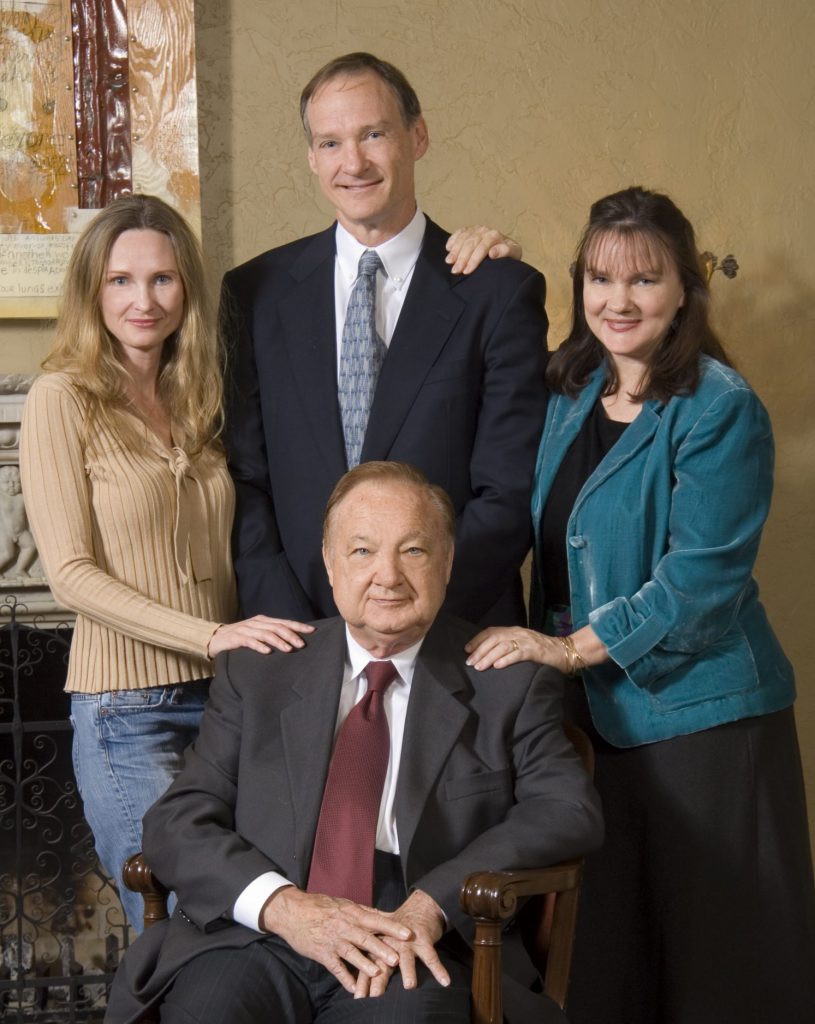
The J. Crayton Pruitt Foundation
The J. Crayton Pruitt Family Department of Biomedical Engineering, part of the Herbert Wertheim College of Engineering, was established in 2002. Its beginnings were made possible by a generous grant from the Whitaker Foundation.
In 2006, Dr. J. Crayton Pruitt and the Pruitt Family Foundation gave a transformative $10 million donation, which was doubled through the State of Florida Major Gift Trust Fund. This $20 million endowment was one of the largest gifts UF had ever received at the time. In recognition, UF named the department in honor of the Pruitt family—making it the first named department at the University of Florida.
About Dr. J. Crayton Pruitt, Sr.

In 1995, Dr. Pruitt—a cardiothoracic surgeon—suffered a major heart attack and was kept alive by a biventricular assist device at UF Health Shands Hospital while awaiting a heart transplant. The device, then the size of a washing machine, is a classic example of biomedical engineering: combining engineering and medicine to save lives. Today, such devices are small enough to be implanted.
Dr. Pruitt’s personal experience deepened his appreciation for biomedical engineering and for UF. He became an inventor himself, co-creating the Pruitt–Inahara Carotid Shunt, now one of the most widely used devices of its kind worldwide. Motivated by his father’s strokes, he pioneered surgical treatment for carotid artery arteriosclerosis and is believed to have performed more of these surgeries than any other surgeon.
Ten days after arriving in Gainesville, Dr. Pruitt received a donor heart, an event that further cemented his gratitude. His first gift to UF came in 2000, supporting the biomedical engineering graduate program. That $2 million donation helped elevate BME to departmental status in 2002. In 2005, he and his children—Crayton Jr., Helen, and Natalie—added another $8 million, bringing the family’s total investment to $10 million.
Although Dr. Pruitt passed away on October 8, 2011, his legacy continues through the department and the annual Pruitt Research Day, which honors his vision and generosity.
BME at UF: Before Department Status
In the mid-1980s, faculty, including Dr. Chris Batich (Materials Science & Engineering), began developing a course of study in biomedical engineering. A decade later, Dean Win Phillips asked Dr. Batich to formally organize a program. With colleagues in engineering and medicine, including Drs. Wes Bolch, David Hintenlang, Rich Melker, and Hans van Oostrum, he formed the Biomedical Engineering Graduate Academic Program Committee (BEGAP). The Whitaker Foundation awarded a $1 million grant, matched by the state, to launch the program.
By 1997, a graduate curriculum was in place, and the first class of 13 students enrolled. Dr. Tony Brennan (Materials Science & Engineering) became the first graduate coordinator, helping the program grow to 75 students, laying the foundation for today’s thriving department.
